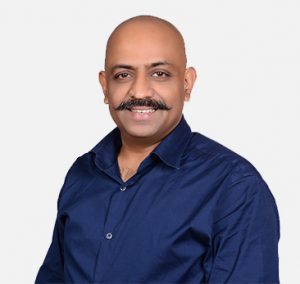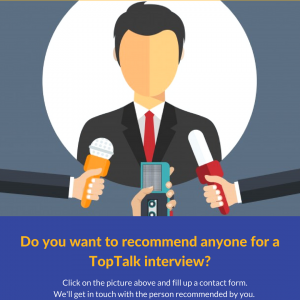 Deep is the CEO & Managing partner at Recalibrate. He has worked, studied and lived in Australia, US, UK, UAE, Singapore, Sri Lanka and India. He is acknowledged in several geographies as a ‘Growth & Renewal’ expert with an exclusive track record of building remarkable leaders who have been the ‘Pivots’ to their organizations through inner mastery and external impact.
Deep is the CEO & Managing partner at Recalibrate. He has worked, studied and lived in Australia, US, UK, UAE, Singapore, Sri Lanka and India. He is acknowledged in several geographies as a ‘Growth & Renewal’ expert with an exclusive track record of building remarkable leaders who have been the ‘Pivots’ to their organizations through inner mastery and external impact.
Deep is a Columbia University executive coach and a leadership consultant and his body of work includes neuroscience, strategy, innovation, emotional intelligence and peak performance. Most of his work in the past 5 years has been in the area of CEO and CxO coaching.
Through his mastery in executive and business coaching Deep has strengthened the capability of C-suite executives and senior leaders in organizations like – Citi Corp, Dassault systems, Publicis Sapient , Credit-Suisse, Cityzenith, NSN , Global Logic, IBM, PwC, TCS, HCL , L & T, Marks and Spencer, Bharti and several other MNCs & large Indian companies.
Video Summary
Dr.Deep, CEO & Managing partner at Recalibrate speaks on GroSum TopTalk about Organizational Culture and best practices.
Video Transcript
Q1. What do you mean by Organizational Culture?
Culture building is seen differently by start ups or young companies and large mature organizations. Personally I believe culture is to an organization what oxygen is to living beings. Culture is what makes the organizations’ heart beat.
Culture also plays an important role in attracting talented employees i.e super stars and rock stars. Over the past several years organizations are experiencing greater diversity in culture than ever before. I am not only referring to gender diversity, it is generational diversity. An organization is like a playground where players with distinct skills, knowledge, attitude, behavior and ethnicity aspire to win and achieve their desired outcomes.
It is not always a fair game and members are both friends and foes!
Q2. What are the major determinants of Organizational Culture?
When we speak about major determinants of organizational culture, firstly it is something which evolves informed from external factors such as socio-economic environment, business and global human capital movement, industry trends, technology advancements, regulations and internal factors include policies around hiring, reward/recognition, infrastructure, growth opportunities and many other secondary factors.
In case of startup’s and young agile companies we cannot undermine the role of founders/CEOs in culture building. The set of values, behavior, beliefs, knowledge and attitude of the leader impacts overall culture and energy of an organization. If the CEO was raised in a conventional educated middle class environment and family oriented then one could expect a fair amount of empathy, acceptance and nurturing style of leadership. On the contrary if the CEO has been raised in a fairly competitive environment in a family of high achiever’s then he/she will demonstrate behaviours such as assertiveness, drive results, stretch others and perhaps more directive. Which ever the case these patterns do trickle down and have a domino effect on the overall culture per se.
Q3. What is the role of employees in organizational culture?
Having said employees play an equally important role in forming Organisational Culture. What is the mix ie gender, SME, geographical and generational? If the leadership mandate is to encourage diversity and inclusion, then one can expect a culture of innovation, creativity and learning per se! . If the employees predominantly are engineers and technologists who are mostly left brained one could expect more objectivity and less of human touch. Yet one must be mindful of geographical cultural nuances. I work across cultures like latam, Europe, US, UAE and experience even engineers across these geographies are very different in behaviour, attitude and overall thinking. My insights through experience and deep knowledge about whole Brian thinking is that engineers and technologists in the west have an imagineers and strategist mindset and in the east mostly analytical and assimilator mindset. Mindsets play an important role in contributing to overall culture per se
Q4. What are the common problems associated with managing organizational culture?
One of my specialty is in the area of transition coaching in which a Common challenge for senior joiners is navigating and aligning to the culture of the hiring company, especially in large matrixed organizations. The reason is that mangers are packed with their own deliverables and aspirations and many believe that a new hire at senior levels should be good enough to find his/her way and learn to wade through choppy political waters. I have had seniors leaders who are new joiners acknowledge that they would have left the system had it not been for the coaching intervention.
Clearly many leaders are not paying much attention to culture building or nurturing. There are many reasons including stretch goals and timelines, extended responsibilities, market drivers and attrition.
Another challenge is lack in articulation of values and putting values in action. Because of the VUCA environment most businesses are focused on driving results at all cost and looking for collaborations in a severely competitive market, which takes the focus away from values, behaviours and its impact on environment per se.
Q5. What are the ways to innovate organizational culture?
Informed from insights through experience I believe some ways which organizations can innovate to develop a culture that propels the organization towards success is to
- First do an appreciative inquiry of “what brings the best in people and link it to the vision”.
- I would make a distinction in the description of culture at every level instead of having a common set of values across organizations. What works in one context and function may not work in another. Example could be- A different set of values and code of conduct in sales organization and another for maybe an HR organization and yet a different set of values and behaviours for top leadership. So then what defines the culture would align to role and responsibility of a person and function per se. In the middle layer, one might want a culture of nurturing talent and empathy, at the junior values like speed, quality in execution, expressiveness, dissent what have you are all enablers for engagement, growth, and retention of talent!
- Leveraging diversity is another area which is hugely undermined. I encourage leadership teams in organizations to encourage cross-cultural hiring and have in place culture guardians who will play the role of stewards in shaping a culture agnostic to the vision and strategic intent of the business.
